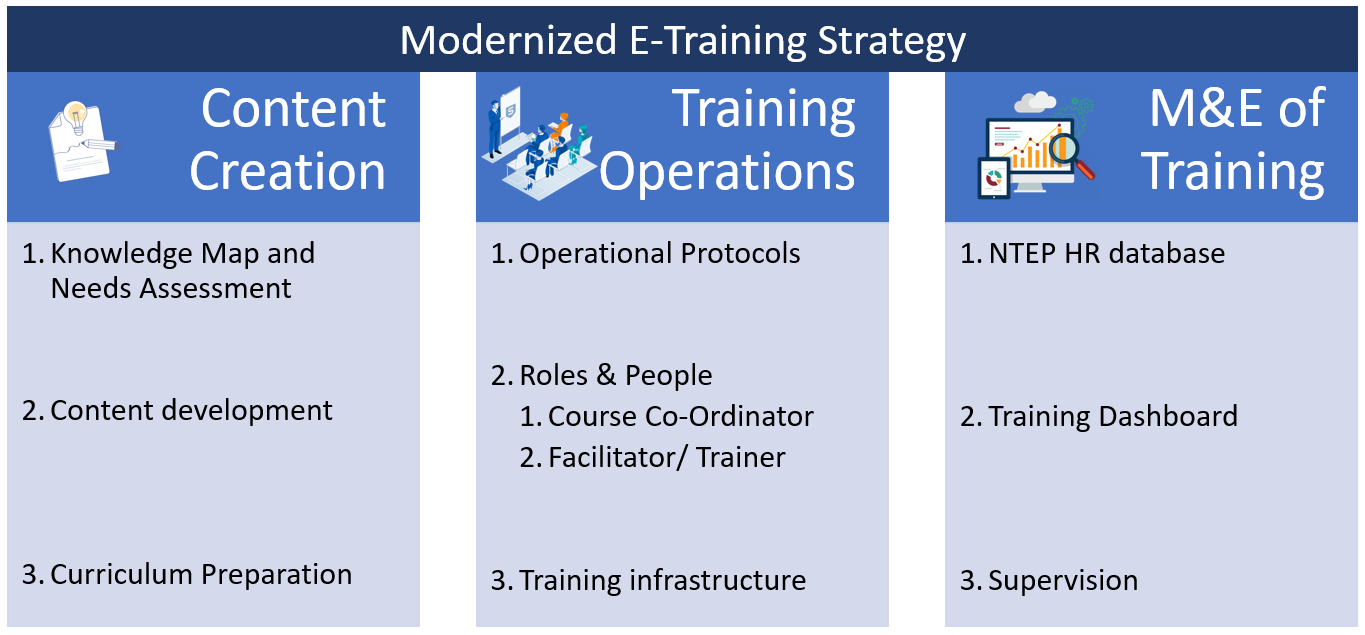Strategy for Modernizing Training
The modernized training system has to find strategic ways to address felt needs. The needs described in the previous section can be fit into three themes. These are:
- Content Development
- Training operations
- Monitoring and evaluation of training
To address these needs effectively, the Modernized Training system needs to have separate sub-systems and protocols in place for each of them. Thus the Modernized Training Strategy in NTEP would have three pillars, each having a separate, but inter-linked IT enabled sub-systems. These are:
- Training content creation: This is first part, where there are systems and processes to create, update and maintain a repository of various training concepts and related standardized training content, along with other documents (guidelines, directives, etc). This would involve an online system called the Knowledge Base. This would be operated by a central team of experts and content creators, who maintain the knowledge base and its contents.
- Training Operations: This component is where the actual training is performed using content prepared. It will include processes such as planning and execution of training and certification. It would include an online Learning Management System (LMS) such as Swasth-eGurukul. This would be operated by trainers and trainees from across the country to deliver and receive training.
- Monitoring and evaluation of training: This component allows the monitoring of the ongoing training in real-time against the general goal of all human resources related to NTEP are "Trained". This would require the maintenance of training information of all related personnel and generate reports or dashboards to monitor the progress/ current status. This would need an online tool for managing the training information of all personnel, including training history and certifications and a dashboard where data can be visually explored to understand the status of training across the country. This system would also include process of training supervision and evaluation and identifying which personnel requires re- or update training.

- Log in to post comments